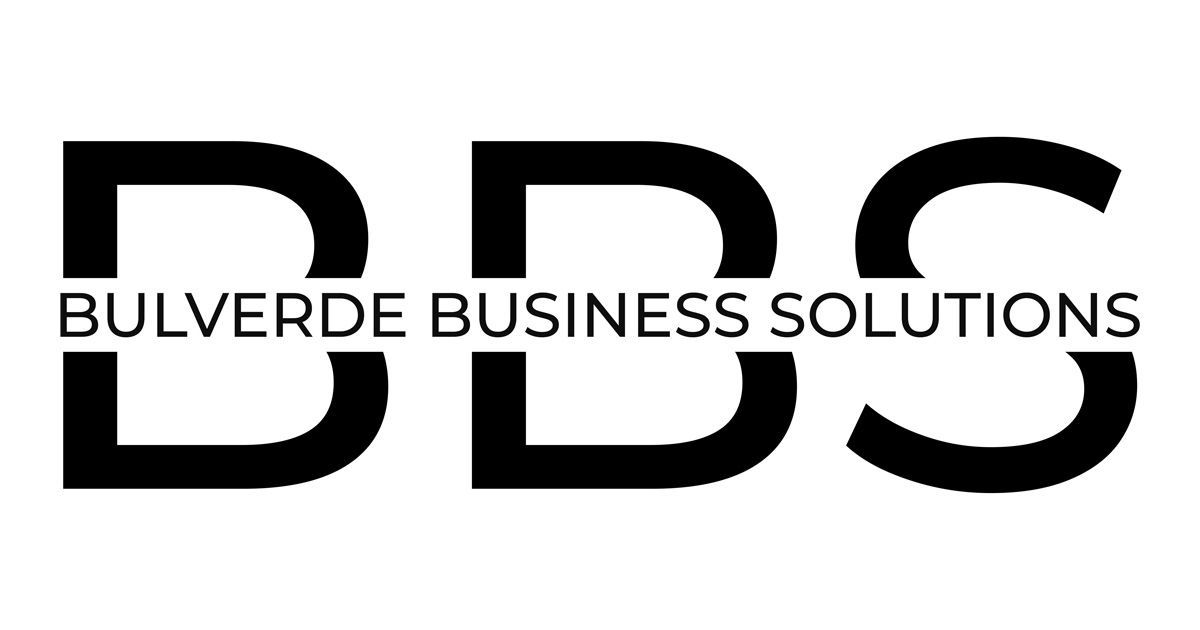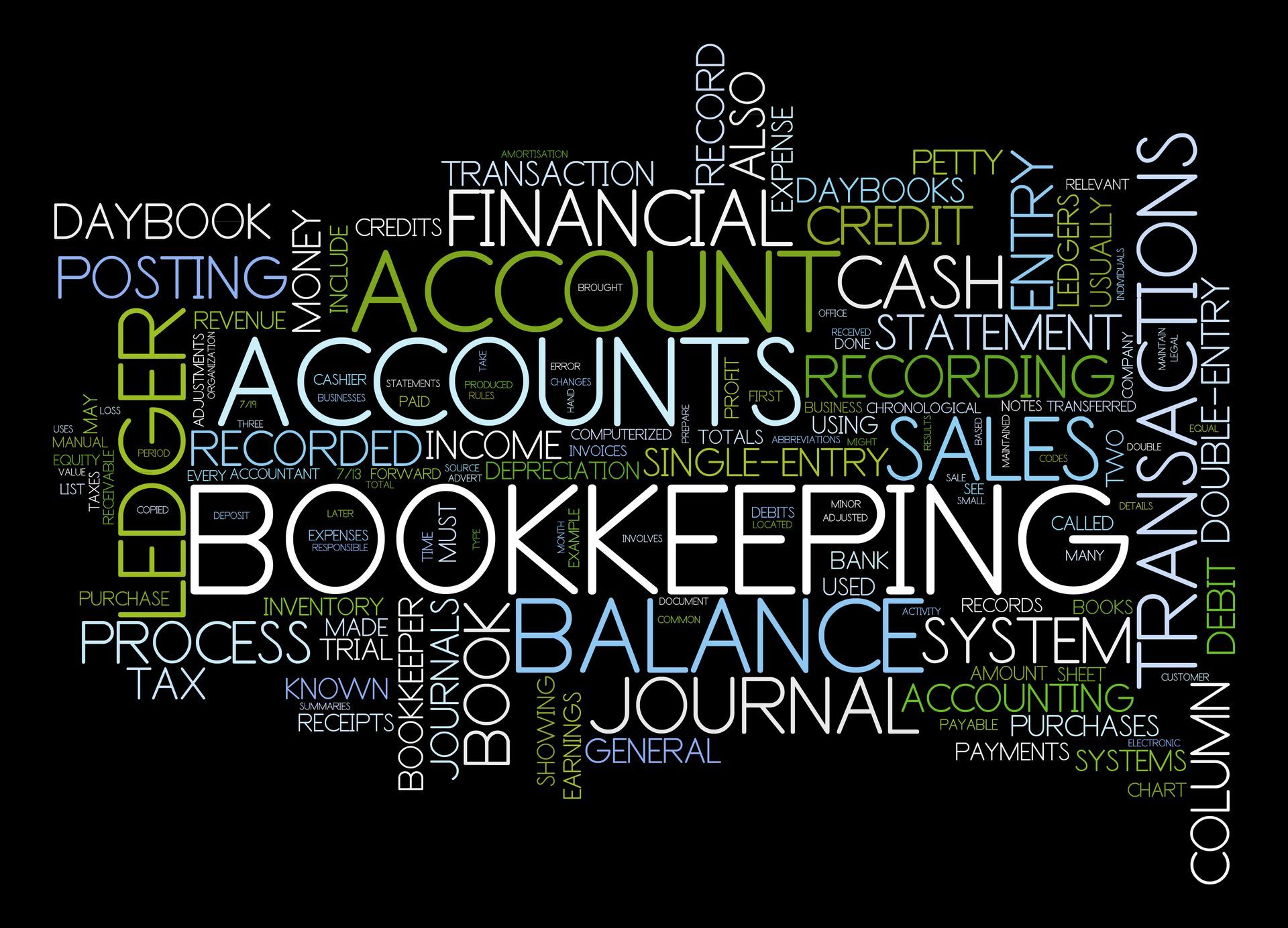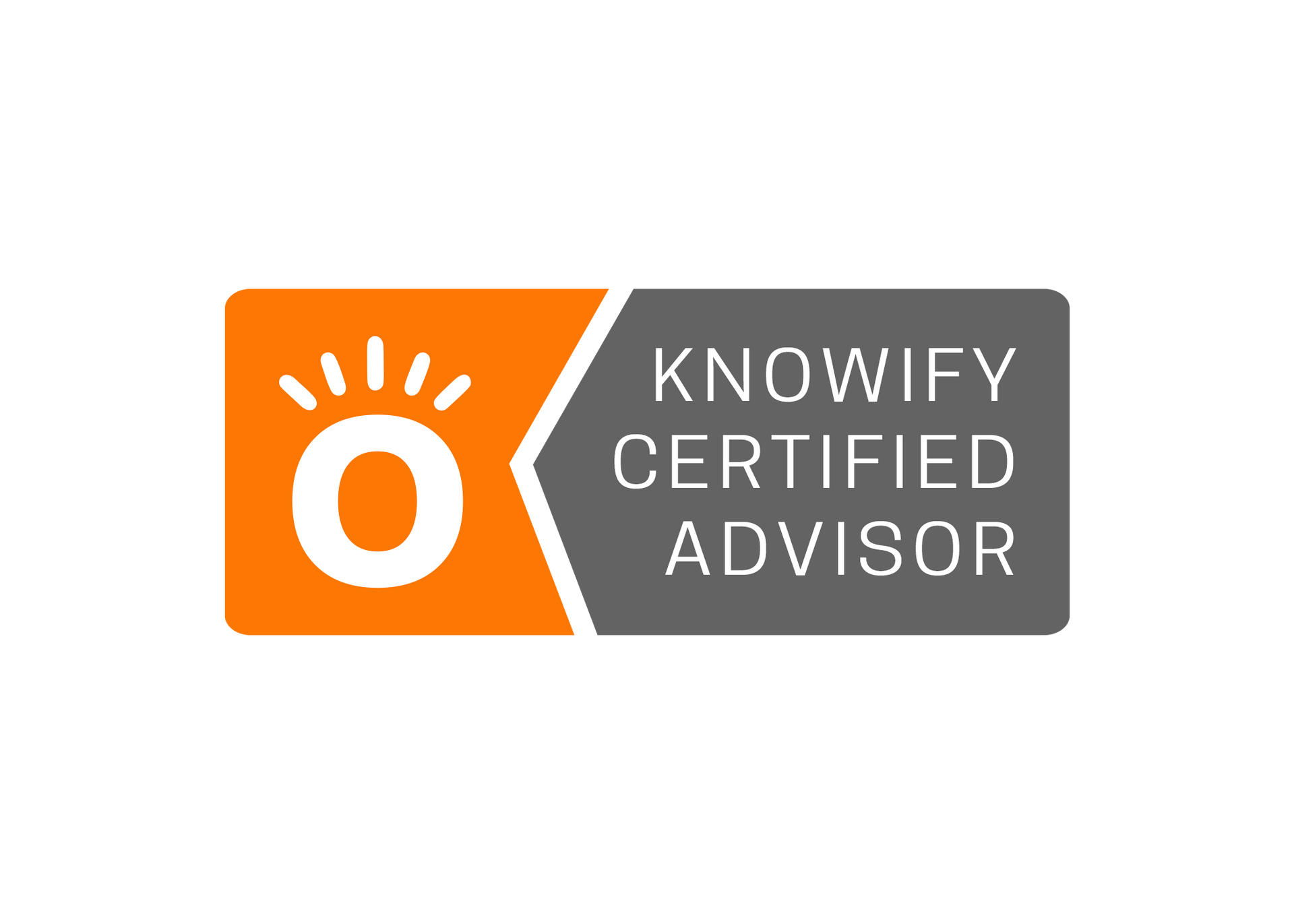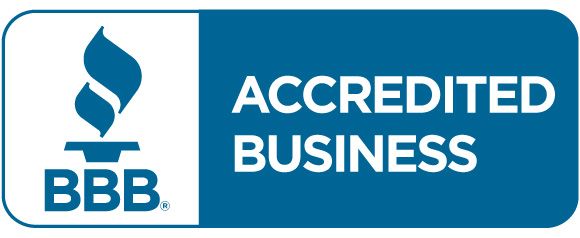Importance of Accurate Bookkeeping for Businesses
Guiding Small Businesses Towards Financial Success Through Precise Financial Records

Running a small business is a complex task. It involves juggling multiple responsibilities, from marketing to operations and, of course, finances. Financial management is a critical aspect of any business. It's even more crucial for small businesses, where margins are often thin and resources limited. Bookkeeping is at the heart of financial management. It's the recording of all financial transactions, a task that may seem mundane but incredibly important.
Accurate bookkeeping is the backbone of sound financial management. It provides a clear picture of a business's economic health, informing crucial decisions. However, many small businesses need help with bookkeeping. They may need more time, expertise, or resources to maintain accurate financial records. That's where bookkeeping services for small businesses come in. These services can handle all bookkeeping aspects, freeing business owners to focus on what they do best.
In this comprehensive guide, we'll explore the importance of accurate bookkeeping for businesses, the benefits it brings, and how to select the right bookkeeping solutions and accounting services for your small business.

Understanding Bookkeeping for Small Businesses
Bookkeeping is a fundamental part of running a business. It involves recording all financial transactions, including sales, purchases, income, and payments.
Bookkeeping aims to provide a clear, accurate picture of a business's financial situation, including everything from cash flow to profitability.
But bookkeeping isn't just about recording transactions. It's also about categorizing them correctly and keeping track of all financial documents.
Here are some critical tasks involved in bookkeeping:
- Recording all financial transactions
- Categorizing transactions correctly
- Reconciling bank statements
- Managing accounts payable and receivable
- Preparing financial statements
- Keeping track of financial documents
Why Accurate Bookkeeping Matters
Accurate bookkeeping is crucial for several reasons. First, it's a legal requirement. Businesses must maintain accurate financial records for tax purposes. But beyond compliance, accurate bookkeeping is a business asset. It provides valuable insights into the financial health of a business, informing strategic decisions. Accurate bookkeeping also helps businesses manage their cash flow effectively. By tracking income and expenses, companies can identify trends, plan for the future, and avoid financial pitfalls.
Moreover, accurate bookkeeping is essential for securing loans and investments. Lenders and investors must see a clear picture of a business's finances before making informed decisions.
Finally, accurate bookkeeping can save small business owners time and stress. With the right bookkeeping solutions, businesses can automate many tasks, freeing time for other essential activities.
The Role of Bookkeeping in Financial Management
Bookkeeping plays a central role in financial management. It provides the data needed for financial reporting, budgeting, and strategic planning.
Financial reporting is a crucial aspect of business management. It involves preparing financial statements, such as income statements, balance sheets, and cash flow statements. These documents provide a snapshot of a business's financial health at a given time.
Budgeting, on the other hand, involves planning for future income and expenses. Accurate bookkeeping data is crucial for creating realistic budgets to guide business decisions.
Strategic planning involves setting financial goals and developing strategies to achieve them. Again, accurate bookkeeping data is essential for this process. It provides the information needed to assess the feasibility of goals and monitor progress towards them.
In short, bookkeeping is the foundation of effective financial management. Without accurate bookkeeping, businesses are essentially flying blind when it comes to managing their finances.

Key Benefits of Bookkeeping Services
Bookkeeping services offer numerous benefits to small businesses. They ensure accuracy and compliance and contribute to strategic decision-making and business growth.
Here are some key benefits of bookkeeping services:
- Improved decision-making
- Compliance and tax preparation
- Effective cash flow management
- Time and cost savings
Improved Decision Making
Accurate bookkeeping provides valuable data for decision-making. It helps businesses understand their financial health, identify trends, and make informed decisions. For instance, bookkeeping data can reveal profitable and non-profitable areas. This information can guide businesses in allocating resources effectively. Moreover, bookkeeping can assist in setting competitive pricing. By understanding costs and profitability, businesses can appropriately price their products or services.
Compliance and Tax Preparation
Bookkeeping services ensure compliance with tax laws and regulations. They maintain accurate financial records, which are essential for tax preparation. Professional bookkeepers stay updated with the latest tax laws. They can help businesses take advantage of tax deductions and avoid penalties. Moreover, accurate bookkeeping is necessary for audit readiness. It ensures that businesses have all the required financial records in case of an audit.
Cash Flow Management
Effective cash flow management is crucial for business survival. Bookkeeping services help businesses track income and expenses, manage accounts payable and receivable, and maintain a positive cash flow. Regular bookkeeping also helps detect discrepancies and stop financial leaks. It can reveal issues like late payments, fraud, or overspending. Furthermore, bookkeeping can assist in managing debt and improving payment cycles. It provides the data to negotiate with creditors and manage cash flow effectively.
Time and Cost Savings
Outsourcing bookkeeping can save businesses time and money, freeing up time for business owners to focus on core activities.
Bookkeeping services can also be cost-effective compared to hiring in-house staff. They provide expertise and resources without the overhead costs of full-time employees. Moreover, professional bookkeepers can provide valuable financial insights. They can advise on cost reduction, profit maximization, and financial planning.
Selecting the Right Bookkeeping Solutions
Choosing the right bookkeeping solution is crucial for small businesses. The solution should meet the business's unique needs, be cost-effective, and be scalable.
Here are some factors to consider when selecting bookkeeping solutions:
- In-house vs. outsourced services
- Features and services offered
- Scalability
- Technology integration and software
In-House vs. Outsourced Bookkeeping Services
The decision between in-house and outsourced bookkeeping depends on several factors, including the size of the business, the complexity of financial transactions, and the budget. In-house bookkeeping may offer more control and direct communication. However, due to overhead costs, it can be more expensive. On the other hand, outsourced bookkeeping services can provide expertise and cost savings. They can also offer flexibility and scalability as the business grows.
What to Look for in Bookkeeping Services
When selecting bookkeeping services, businesses should consider their specific needs. The services should be tailored to the business size, industry, and financial requirements. Businesses should also consider the service provider's credentials and experience and look for services that comply with Generally Accepted Accounting Principles (GAAP). Moreover, businesses should ensure that bookkeeping services offer clear communication and regular updates. They should also provide data security and confidentiality.
The Importance of Scalable Solutions
Scalable bookkeeping solutions can grow with the business. They can adapt to increasing financial transactions and changing business needs. Scalability is essential for growing businesses. It ensures that the bookkeeping services can handle increased workload and complexity. Moreover, scalable solutions can offer cost savings. They allow businesses to pay for the services they need without unnecessary costs.
Technology Integration and Software
Technology plays a crucial role in modern bookkeeping. Businesses should consider the technology and software used by the bookkeeping services. The right software can streamline bookkeeping tasks and improve efficiency. It should offer features like automation, real-time data, and integration with other business systems. Moreover, businesses should consider the software's user-friendliness. It should be easy to use and offer training and support for in-house staff.
Common Bookkeeping Challenges and Solutions
Bookkeeping can present several challenges for small businesses. These include common errors, data security issues, and the need for regular financial reporting.
Here are some common challenges and their solutions:
- Avoiding common errors
- Maintaining data security
- Regular financial reporting
Avoiding Common Errors
Common bookkeeping errors, such as data entry errors, missed transactions, and incorrect expense categorization, can lead to financial mismanagement and business failure. Businesses should consider professional bookkeeping services to avoid these errors. These services can provide accuracy, consistency, and attention to detail. Moreover, businesses should regularly review their bookkeeping practices. Regular reviews can help detect discrepancies and stop financial leaks.
Maintaining Data Security
Data security is a significant concern in bookkeeping. Businesses must protect their financial data from theft, loss, and cyber attacks. To maintain data security, businesses should consider bookkeeping services prioritizing data protection. These services should offer secure data storage, encryption, and regular backups. Moreover, businesses should regularly back up their financial data. This can prevent data loss and ensure business continuity in a data breach.
Regular Financial Reporting
Regular financial reporting is crucial for informed decision-making. It helps businesses identify trends, make strategic decisions, and communicate financial information to stakeholders. Businesses should consider bookkeeping services that offer this feature to ensure regular reporting. These services should provide timely and accurate financial reports. Moreover, businesses should understand how to read and interpret financial statements. This can help them make informed business decisions and plan for the future.
Leveraging Bookkeeping for Business Growth
Bookkeeping is about more than just compliance and record-keeping. It can also be a powerful tool for business growth.
Accurate bookkeeping provides the data needed for strategic planning and forecasting. It can help businesses identify profitable areas, manage seasonal fluctuations, and plan for expansion.
Moreover, bookkeeping can enhance a business's credibility with lenders and investors. It can help secure loans, attract investments, and facilitate merger and acquisition activities.
Finally, bookkeeping contributes to the long-term value and sustainability of the business. It helps create a sustainable business model, improve credit scores, and build a strong reputation.
Strategic Planning and Forecasting
Strategic planning and forecasting are crucial for business growth. They help businesses set and achieve financial goals, manage resources effectively, and anticipate future needs. Accurate bookkeeping provides the financial data needed for these activities. It helps businesses track income and expenses, manage cash flow, and forecast future financial needs.
Moreover, bookkeeping can assist in setting competitive pricing for products and services. It can help businesses calculate the return on investment for business ventures and identify opportunities for diversification.
Access to Financing and Investments
Access to financing and investments is often a challenge for small businesses. Lenders and investors require accurate financial records to assess the business's viability and creditworthiness. Accurate bookkeeping can enhance the credibility of the business with these stakeholders. It can help secure loans, attract investments, and facilitate merger and acquisition activities.
Moreover, bookkeeping is crucial for partnership and shareholder agreements. It provides the financial transparency needed for these agreements and helps resolve financial disputes.
Long-Term Business Value and Sustainability
Long-term business value and sustainability are key goals for any business. They require financial stability, profitability, and a positive business reputation. Accurate bookkeeping contributes to these goals. It helps create a sustainable business model, improve credit scores, and build a strong reputation. Moreover, bookkeeping is essential for business continuity planning. It provides the financial data needed for this planning and helps businesses prepare for financial contingencies.
Conclusion: The Asset of Accurate Bookkeeping
In conclusion, accurate bookkeeping is not just a legal requirement but a valuable asset for small businesses. It provides the financial clarity needed for informed decision-making, strategic planning, and business growth. Moreover, bookkeeping enhances the business's credibility with stakeholders, facilitates compliance and tax preparation, and contributes to the long-term value and sustainability of the business. Therefore, small businesses should invest in accurate bookkeeping and consider it an integral part of their business strategy.
Get a Free Consultation
Accurate, weekly bookkeeping tailored to small business owners—so you can grow with confidence.
Latest Posts













